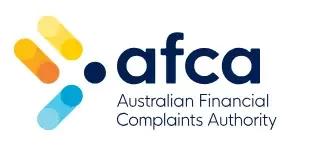Nerve Damage Compensation Calculator: How Much Can You Claim?
Suffering from nerve damage can be life-altering. Nerve damage
It can be frustrating to deal with a rejected insurance claim. However, understanding the reasons for denied insurance claims and how to appeal them can significantly improve your chance of success. Our legal team will help you understand the reasons for refused insurance claims and three options to challenge a disputed claim.
Thankfully, Aussie Injury Lawyer’s insurance law experts provides advice on a 100% No-Win, No-Fee basis. Contact us immediately to learn about the appeals process and how we can help when an insurance company refuses to pay out.
When an Australian insurance company denies your insurance claim or TPD claim, there is no need to panic. You do not need to accept their decision. There are 3 options to challenge your insurer’s assessment and reverse their judgement so you can access your entitlements.
The appeals process applies to all types of insurance cover, including:

At Aussie Injury Lawyers, we win 99% of our insurance claims. Due to our many years of legal experience in these types of matters, most of our claims succeed without needing to be litigated. Should your insurer deny your entitlements in the first instance, we would argue your case on your behalf and seek to reverse their decision without litigation (which can be costly, stressful, and not consistently successful).
All insurers and superannuation funds have a formal internal dispute resolution process that often requires additional evidence. Additionally, there are time limits for superannuation funds and insurers to respond to your appeal, so you could get a fast reply.
The Internal Dispute Resolution process is the first step in appealing a denied claim. It is a formal procedure that includes the following steps:
The insurer will typically need more details or evidence before reevaluating the claim. Then, if the insurer doesn’t reverse their decision, they must explain why.
To start an IDR complaint, you contact the insurer with your details and follow their guidelines for submitting a complaint. Typically, you’ll need to provide:
Please keep copies of all correspondence and documents related to your case. If the IDR process doesn’t satisfactorily resolve the dispute, you can escalate the complaint to an external dispute resolution scheme, such as the Australian Financial Complaints Authority (AFCA), or seek legal advice.
Timelines and deadlines for IDR complaints may vary, but insurers typically must respond within 30-45 days. In some cases, the timeframe for an IDR complaint response can be extended under specific conditions, as specified in RG 271.
There can be consequences if the insurer doesn’t respond within the stipulated timeline, such as:

If the IDR process fails to resolve your dispute, the Australian Financial Complaints Authority (AFCA) offers external dispute resolution services for insurance claim disputes.
Before lodging a complaint with an independent third party, you should attempt to resolve the issue directly with your superannuation fund or insurer. If you cannot resolve the dispute, you can file an AFCA complaint. Australian financial complaint authority determinations are binding, and if you accept their decision, the super fund or insurer must comply.
To file an AFCA complaint, you must complete a complaint form and provide the necessary documentation, including:
Relevant documents to include when filing an AFCA complaint can consist of:
Accurate and complete documentation will increase your chance of a successful AFCA complaint and help facilitate the external dispute resolution process.
AFCA’s decision-making process involves:
They consider factors such as:
To ensure both parties’ arguments are heard, AFCA follows these steps:
If the complaint can’t be resolved between the parties, AFCA will decide the best outcome and can provide compensation for losses suffered.
Legal action may be necessary if an IDR complaint and AFCA processes fail to resolve the dispute. Aussie Injury Lawyers rarely litigate an insurance claim in court, and we wouldn’t take action unless you instructed us to do so. Time limits for court claims also apply.
It is possible to lodge a court case for a denied insurance claim against solely your insurer or your insurer and superannuation fund. Procedures for litigating in court vary from State to State and for different jurisdictions. Here is how the process works typically:
Litigation can be stressful and expensive, but it can force your insurer to consider your case seriously. If your litigation succeeds, you may also be able to claim additional damages.
A denied insurance claim is often a significant financial burden, especially if you feel your insurance policy should cover your situation. The first step towards successfully appealing a rejected claim is understanding the reasons why a claim might be rejected.
If you are unfortunate to have your insurance claim denied, chat with one of our experienced insurance lawyers. They will find the best legal strategy for your case. Call now for free advice at 1300 873 252
The primary reason for a rejected insurance claim in Australia is lack of evidence. For your case to be successful, you must present the insurer with solid evidence that satisfies the terms of your policy. These documents show that you have a valid claim and often include the following:
Another common reason for rejected claims in Australia is failing to disclose complete and accurate information. Complete transparency during the insurance claim process is paramount, enabling insurers to gauge the risk precisely and set suitable coverage and premiums. Nondisclosure or misrepresentation can result in severe consequences, like cancellation of your policy or a refused claim.
When lodging an insurance claim, it is of utmost importance to provide the insurer with all the required details, such as your:
Claim disputes often arise from failure to meet policy conditions or exclusion clauses. Fortunately, the Insurance Contracts Act 1984 (Cth) provides the legal framework for insurance contracts in Australia, including remedies when an insurer refuses to pay out a claim due to an act or omission after insurance contracts are signed.
Hence, you can reduce the chance of a rejected insurance claim by examining your insurance policies until you understand the clauses determining whether you qualify for a payout.

If you are disputing the outcome of a TPD, Income Protection or other type of insurance claim, time limits may apply. So please immediately speak with one of our legal team for free initial advice. Call 1300 873 252
Our experienced insurance claim dispute lawyers will:
It can be challenging to reverse a denied insurance claim. That’s because insurance companies seek to protect their profits. Thankfully, specialist insurance lawyers (like Aussie Injury Lawyers ) regularly negotiate with all the leading Australian insurers. On a 100% no win, no fee basis, we help with the following:
Hiring an insurance lawyer is a time and cost-effective decision in the long term, increasing your chance of a successful outcome. It’s free to start your case, and you pay nothing until we win your claim – Call Now 1300 873 252

If your claim is rejected, you can lodge a dispute with the insurer using their internal dispute resolution process or contact an insurance claim lawyer for help. If you still can’t achieve your desired outcome, you can take legal action or pursue other outside options.
In Australia, insurers typically deny between 10% and 20% of claims, although denial rates vary depending on the type of insurance cover and claim. Particularly for a car insurance policy.
An insurer rejects claims for various reasons, but most are denied because of:

Hardworking and straight-talking, our experienced superannuation and insurance legal team is dedicated to delivering results for you. The expert team at Aussie Injury Lawyers is led by Kerry Splatt, an Accredited Specialist in Personal Injuries law. His expertise, together with over 100 years of combined legal experience, is your guarantee of success. Reach out. Let us show how we can assist you and your loved ones when the unexpected happens.
Suffering from nerve damage can be life-altering. Nerve damage

If you’ve been diagnosed with carpal tunnel syndrome and it’s

You can make a TPD claim through your superannuation fund